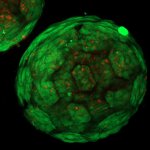
News • New approach to replacement tissue
3D printing of artificial cartilage
Material scientists at TU Wien (Vienna) have developed a new approach to producing artificial cartilage tissue: using a 3D printer, cells are grown in microstructures.

Material scientists at TU Wien (Vienna) have developed a new approach to producing artificial cartilage tissue: using a 3D printer, cells are grown in microstructures.
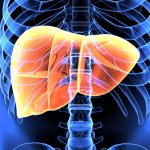
Research reveals how a new mechanism could improve the efficiency of current treatments for diabetes. This may open up new ways of approaching metabolic diseases that are a global health problem.

Heat waves are becoming more common due to climate change. Researchers in Cologne explore what this might mean for the effectiveness of medication.

Targeting a specific protein, Finnish researchers may have found a way to restore drug-resistant neuroendocrine prostate cancer to a state that responds to treatment.
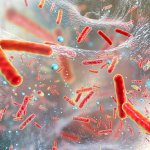
Once a patient’s body has been colonized by resistant bacteria, they can persist for a long time, a new study by the University and University Hospital of Basel shows.

Was dementia already an issue for Hippocrates and his contemporaries? A new analysis of classical Greek and Roman medical texts suggests that Alzheimer's is connected to modern environments.

Instead of killing viruses and bacteria with chemical disinfection, a new approach uses minuscule spikes to skewer them. This could be used to prevent surface contamination in hospitals or labs.
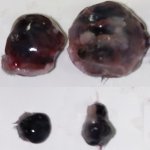
Researchers in Japan and the US have developed technology to robustly augment the amount of MHC class I molecules in cancer cells. This makes them easier to find and destroy for the immune system.
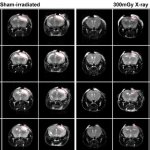
Neuroscientists recently discovered that low-dose ionizing radiation (LDIR) can reduce lesion size and reverse motor deficits in TBI and ischemic stroke mice, demonstrating its therapeutic potential.

Heat islands found in many European cities have a clear impact on human mortality risk, comparable to air pollution. A new study has produced the first cost estimate of this impact.

As a result from better living standards and medical advances, population longevity increases – a development which, paradoxically, current healthcare systems are ill-prepared for, Sir John Bell points out. The UK’s Our Future Health programme, which he chairs, exemplifies the paradigm shift to a prevention-centered healthcare approach.
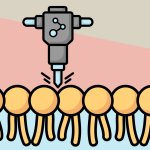
Using a unique new technique, US researchers hope to offer a safer and more effective alternative to current cancer treatments, reporting promising first results in mice.
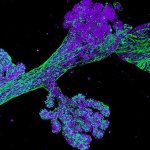
Scientists have pinpointed likely ‘cells-of-origin’, the source cells that can grow into breast cancer, in women carrying a faulty BRCA2 gene who are at high risk of developing the disease.

Men with gynaecomastia (non-weight-related enlarged breast tissue) may be at heightened risk of an early death before the age of 75, suggests the first study of its kind.
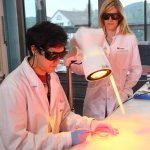
A new soldering technique developed by Empa researchers is expected to prevent wound healing disorders and life-threatening complications from leaking sutures.
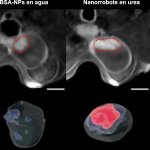
New research demonstrates how tiny nanomachines could greatly reduce bladder cancer by precisely targeting the tumour and attacking it with a radioisotope carried on their surface.

Researchers have analysed the rise of antibiotic resistance over the last 20 years in the UK and Norway, highlighting that antibiotic use is not the only factor in the increase.
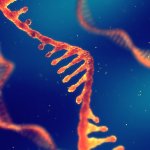
Coronavirus vaccines have showcased the possibilities of messenger RNA (mRNA) technology. Now, a research team aims to put it to use against a rare inherited metabolic disorder.
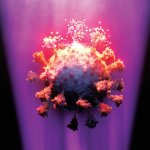
Researchers from the University of Southampton investigated how ultraviolet laser light destroys the coronavirus Sars-CoV-2 by impacting components critical for infection.

Combining a biological heart and a silicone robotic pump, researchers created a biorobotic heart that beats like a real one, with a focus on a valve on the left side of the heart.

Contraception, wound healing, arthritis treatment: Here are three recent papers published in ACS journals that could expand the beneficial uses for nanoparticles, based on results in rats.
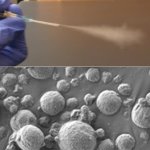
Using a new technology developed at MIT, diagnosing lung cancer could become as easy as inhaling nanoparticle sensors and then taking a urine test that reveals whether a tumor is present.
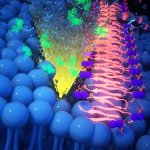
A new synthetic antibiotic developed by University of Liverpool researchers is shown to be more effective than established drugs against ‘superbugs’ such as MRSA, a new study shows.
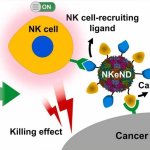
A research team has successfully developed “NK cell-engaging nanodrones” capable of selectively targeting and eliminating cancer cells, offering a potential solution for intractable cancer types.
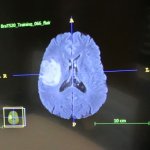
Can AI help better evaluate images of brain tumours? A publication from German researchers on this topic presented at this years' ICIS conference won the Best Paper Award.